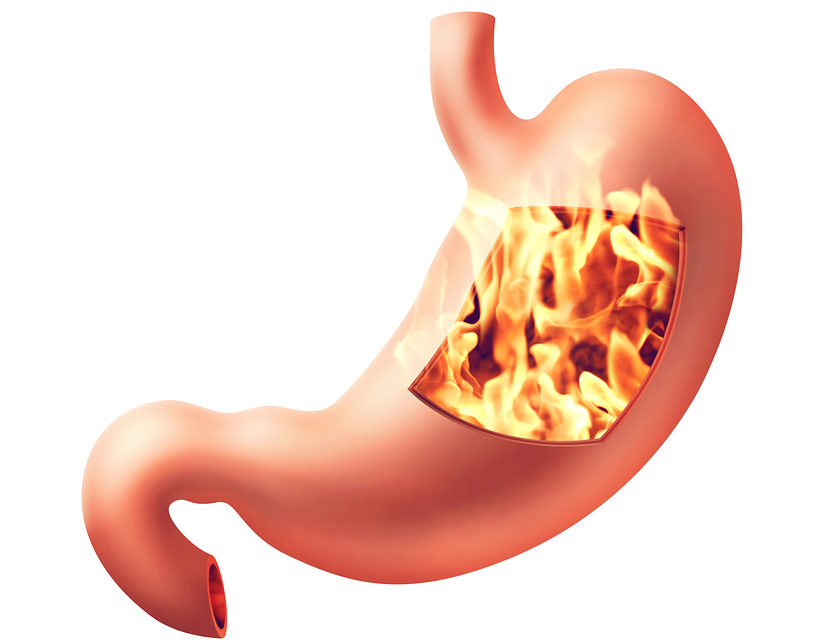A study performed on mice by researchers from the University of Michigan Medical School at the Howard Hughes Medical Institute shows that acid suppressing medications (proton pump inhibitors, like Prilosec and Prevacid) may actually aggravate the conditions that they are designed to treat. The stomachs of mice treated with these drugs developed more inflammatory changes and had greater bacterial infestation than those who were not treated (when the researchers treated normal mice with the proton pump inhibitor omeprazole for two months, they noticed that these mice also developed stomach inflammation that was due to bacterial overgrowth).
Bacteria cause an inflammatory response in the stomach, which in turn causes the over production of hydrochloric acid. The bacterial infestation causes the production of chemicals called cytokines. These cytokines causes the production of a hormone, called gastrin. The acid producing cells of the stomach, called parietal cells, produce hydrochloric acid in response to the gastrin production. The acid production is the body’s defense mechanism designed to kill the invading microbes. Interfering with acid production by using omeprazole interferes with the body’s defense against these bacteria.
The researchers compared responses in normal mice with mice genetically unable to produce gastrin. When treated with the anti acid drugs, both groups of mice showed increased inflammatory changes and increased bacteria. Antibiotic treatment resolved gastritis in mice being treated with anti acid medication. Low hydrochloric acid and increased inflammation caused increases in G-cells (cells that produce gastrin) and in parietal cells (cells that produce hydrochloric acid). This elevation in the number of G-cells and parietal cells correlated with inflammation, and not with stomach acidity.
One of the researchers, Juanita L. Merchant is quoted as saying, “In treating patients with gastrointestinal disorders, physicians usually aim to increase the pH of the stomach, particularly in patients who are in the intensive care unit, to try to protect their stomach linings from ulceration — which physicians initially believed was due only to stomach acid. There is also the dogma that most ulcers are due to infections by Helicobacter. But one important take-home point from our papers is that you don’t want to block acid secretion over the long term just to treat either the bacterial overgrowth or the Helicobacter infection, because that’s going to potentially create other problems.”
Interestingly, the increase in acid does not inhibit Helicobactor pylori. A low-acid environment will inhibit Helicobactor, which has been linked to gastritis, ulcers and cancer. The interest in suppressing acid is born of the idea that to do so is necessary to suppress Helicobacter. The researchers point out that other bacteria can also cause gastritis and cancer. “In general, the medical community needs to think more broadly about chronic infections in the stomach, colon, bladder and liver, because inflammation in all of these organs can lead to cancer,” Merchant said. “Helicobacter has quite correctly been labeled as a significant carcinogen, but our papers emphasize that other organisms can also cause chronic gastritis that may ultimately lead to cancer.” The research appears in the January 2002 issues of Gastroenterology and the American Journal of Physiology — Gastrointestinal and Liver Physiology by HHMI investigator Juanita L. Merchant and colleagues at the University of Michigan.






